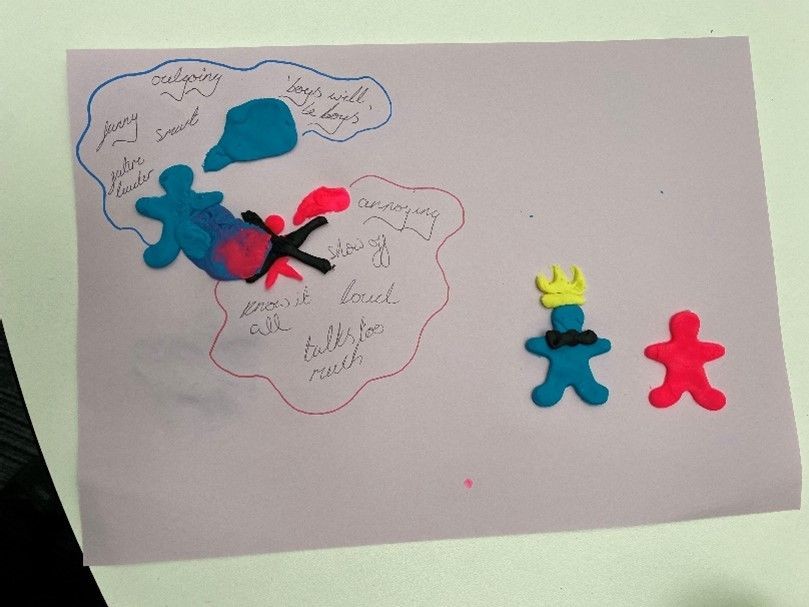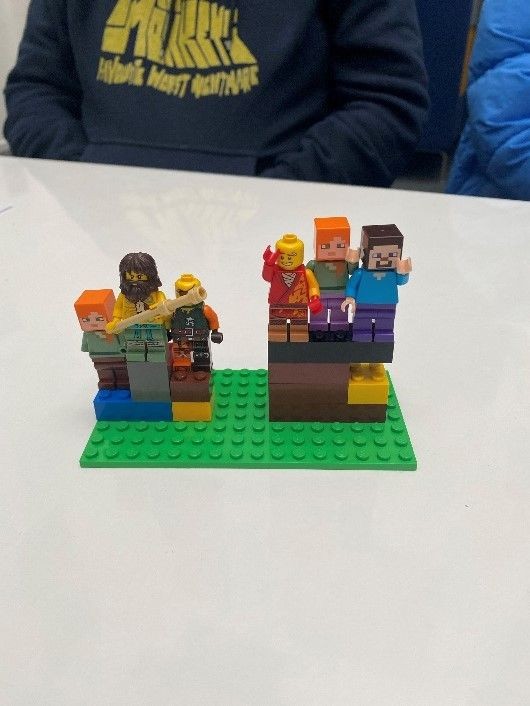Empowering Young Females and Males: Using Creativity to Explore Gender and Social Justice in the UK Case
The Preston research team made a choice to employ creative methods instead of traditional focus group discussions to delve into the perspectives of young people regarding gender and social justice. Recognising that young individuals might hesitate to express their true thoughts and feelings in a focus group setting, the team opted for creative activities that fostered a safe and welcoming environment. Through these methods, young citizen scientists (YCS) were able to express themselves freely and comfortably. In this blog, we will delve into the insights shared by eight YCS participants during these sessions. The YCS participants shed light on various issues related to gender differences that young people experience in Preston. These encompassed experiences of sex discrimination, expectations regarding self-presentation, and workplace hierarchies. Furthermore, the YCS participants also explored potential solutions to address these issues. After completing their artistic creations, these works were displayed in a gallery, allowing the entire group to reflect upon and discuss them collectively.
The YCS participants brought attention to numerous instances where gender roles influenced the social dynamics of young people, particularly within educational settings. A notable observation was that young girls who spoke assertively were often met with disapproval, whereas boys expressing themselves were perceived as intelligent. This contrasting treatment resulted in labelling girls' behaviour as "annoying" or "show-offish," thereby discouraging their active participation in discussions. Interestingly, the male YCS participants also acknowledged a notable shift in behaviour among 16-18-year-old boys, specifically within the college context. These boys exhibited a more reserved demeanour during lessons, while girls displayed an initiative-taking approach by sitting at the front and actively engaging with teachers.
I feel like I saw it more in high school, but as it's sort of gone on to college, feel like it's sort of shifted a little bit. Like boys don't usually speak at all... They usually sit at the back of the room…and don't sit in the front.
Male Young Citizen Scientist
One YCS participant created an image depicting a male figure adorned with a crown and bow tie, contrasting with a pink dough figure representing a female without distinguishing characteristics. This artwork aimed to illustrate subtle differences in young people's perceptions of gender that can have an impact on others. The female YCS who created this piece believed that men are more respected in the workplace, while female co-workers are treated more casually and with less respect. This perception can have profound implications for gender dynamics among young people. These gender perceptions can also affect young people's career choices and opportunities. The belief that men are more respected in the workplace may discourage young girls from pursuing careers in traditionally male-dominated fields. It may create a barrier that limits their options and perpetuates gender segregation in the workforce.
Another YCS participant explained that there is an underlying pressure for females to conform to certain expectations, while males are not subjected to the same standards. Not adhering to these unspoken norms can lead to feelings of exclusion. To illustrate this point, one YCS used Lego pieces to create a visual representation. The Lego piece on the right symbolized the position of males, while the one on the left represented females.
So, how can youth gender issues be addressed?
The YCS suggested a few solutions, such as incorporating more relationship and sex education lessons into the school curriculum and providing more opportunities for young girls to gain work experience in male-dominated fields. They also highlighted the importance of establishing safe spaces within communities for open and honest conversations about gender issues. The Preston Youth Zone initiative which will open in late 2024 was identified as an ideal platform for hosting such discussions in the future. Furthermore, it was noted that conversations about gender issues often remained overlooked in educational institutions, emphasizing the need for increased opportunities to express and exchange diverse viewpoints. One YCS participant emphasized the importance of open conversations, stating:
"Just having more open conversations about it, I feel like people are scared to talk about it."
Female Young Citizen Scientist
Utilizing participatory creative methods can be more engaging and provide a better understanding of young people's perspectives and experiences. Activities centred around creativity allow for a broader range of responses and perspectives compared to traditional group discussions. Young individuals can express themselves through art, writing, and other creative mediums, which provide diverse insights, as observed in the use of these methods to explore gender.
So, what strategies can be implemented to address gender differences? Gender issues are complex, particularly when considering non-binary gender identities, making it challenging to discuss gender-related matters openly and honestly. Employing creative methods can help navigate this complexity in more meaningful ways and support young people in thinking critically about these issues. However, it remains crucial to continue discussing gender and the impact of perceptions on inclusion and belonging if we aspire to create a more equal and inclusive society for young people
Comments
By accepting you will be accessing a service provided by a third-party external to https://www.youcountproject.eu/
This website uses no external trackers, no analytics, just session cookies and values your online privacy.




